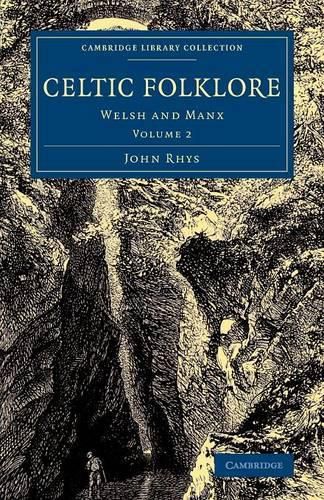Readings Newsletter
Become a Readings Member to make your shopping experience even easier.
Sign in or sign up for free!
You’re not far away from qualifying for FREE standard shipping within Australia
You’ve qualified for FREE standard shipping within Australia
The cart is loading…






John Rhys (1840-1915), the son of a Welsh farmer, studied at Oxford and in Germany, and became the first professor of Celtic languages at Oxford in 1877. His research ranged across the fields of linguistics, history, archaeology, ethnology and religion, and his many publications were instrumental in establishing the field of Celtic studies. This two-volume work, published in 1901, had its beginnings in the late 1870s, when Rhys began collecting Welsh folk tales, several of which appear, with English translations, in Volume 1. Volume 2 analyses recurring Welsh themes, including submerged cities, water spirits and rivers; caves, heroes and treasure; place-names and Arthurian legends. It also considers, in a more global context, topics such as name magic, shape shifting, and the fairy as ‘other’. Rhys discusses the difficulties of interpreting folkloric motifs and discovering their origins, and the blurred borders between story and history, myth and superstition.
$9.00 standard shipping within Australia
FREE standard shipping within Australia for orders over $100.00
Express & International shipping calculated at checkout
John Rhys (1840-1915), the son of a Welsh farmer, studied at Oxford and in Germany, and became the first professor of Celtic languages at Oxford in 1877. His research ranged across the fields of linguistics, history, archaeology, ethnology and religion, and his many publications were instrumental in establishing the field of Celtic studies. This two-volume work, published in 1901, had its beginnings in the late 1870s, when Rhys began collecting Welsh folk tales, several of which appear, with English translations, in Volume 1. Volume 2 analyses recurring Welsh themes, including submerged cities, water spirits and rivers; caves, heroes and treasure; place-names and Arthurian legends. It also considers, in a more global context, topics such as name magic, shape shifting, and the fairy as ‘other’. Rhys discusses the difficulties of interpreting folkloric motifs and discovering their origins, and the blurred borders between story and history, myth and superstition.